As Juneteenth nears, ‘Black joy’ becomes a balm against attacks on civil rights and historical truth
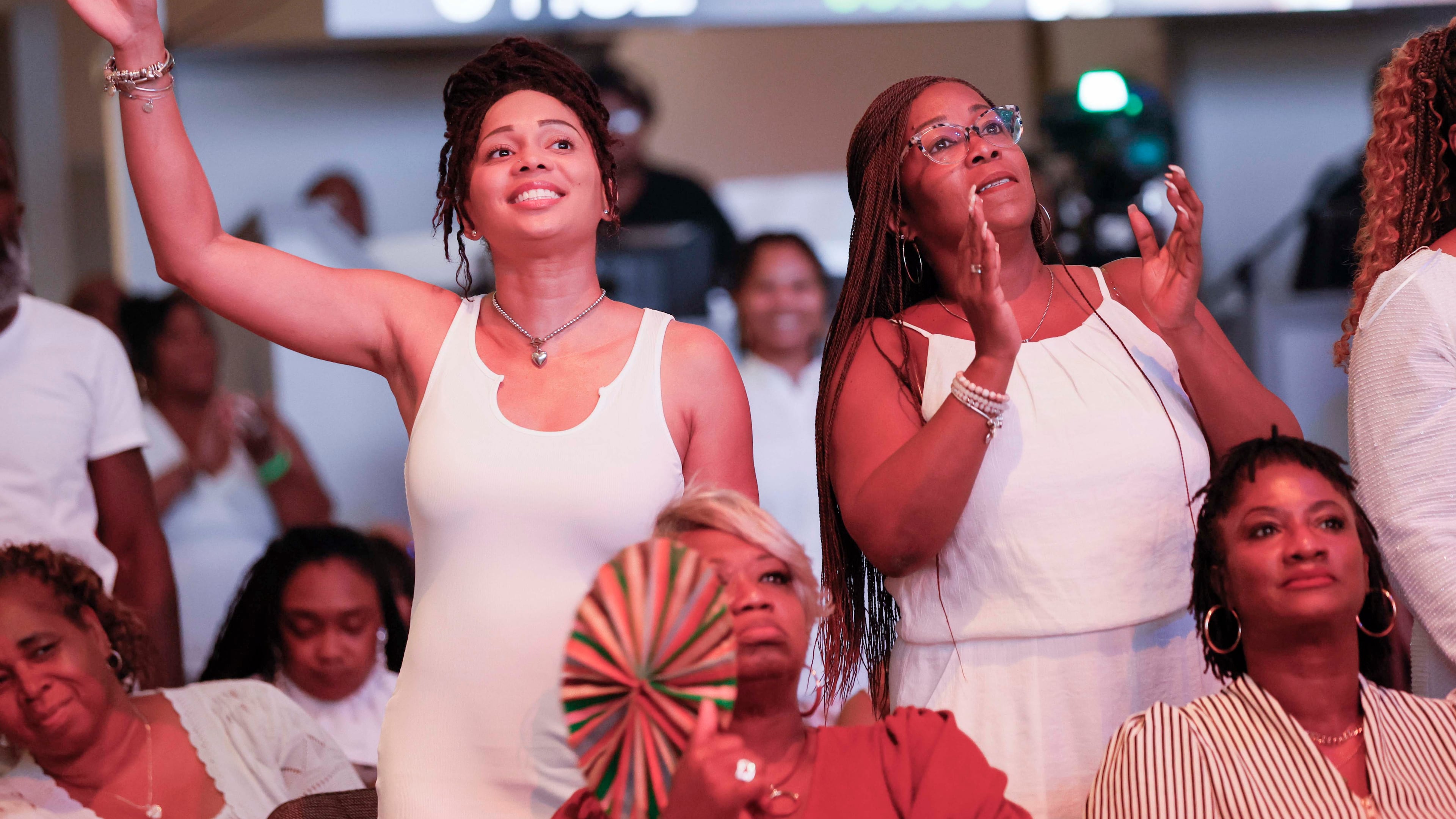
“Black joy is Black will.” — Nikki Giovanni, 2017
On a quiet morning in Decatur, Cortney LaFloy lights a candle, takes a breath and lifts a steaming mug of coffee, gazing over her garden. Each sip is ceremony.

In Mableton, Adrian P. Woods, her black combat boots laced with red sparkly laces, commands a gym full of line dancers, using their fans to mark rhythm and cool their bodies.

And in Marietta, Lisa Yolanda George checks her packed calendar for her next adventure — kayaking, racewalking, fencing, hiking, scuba diving, horseback riding, open water swimming, soap making, rock climbing and even double dutch — not as indulgence, but as a necessity to “infect people with joy.”
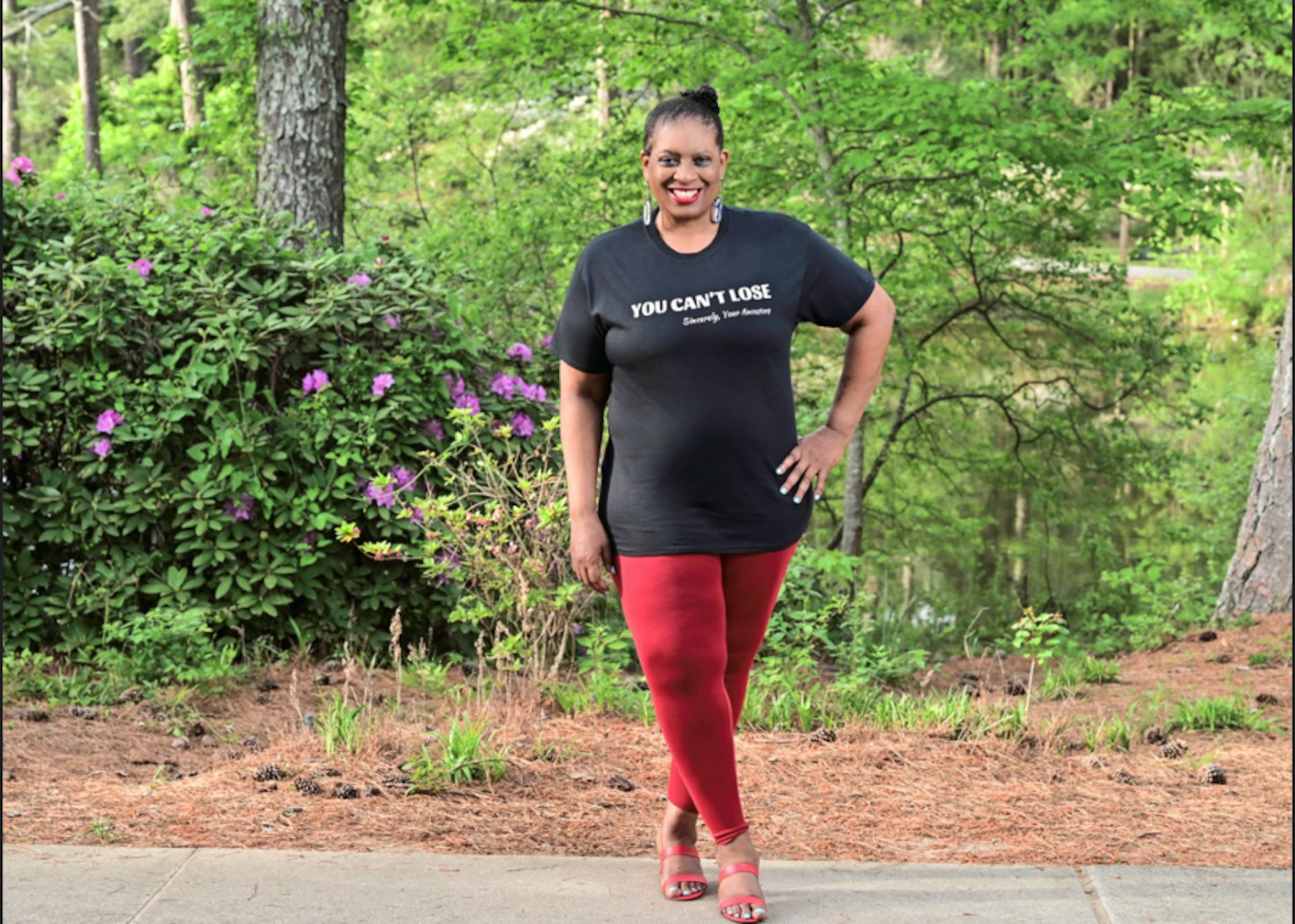
These women don’t just talk about joy. They plan, grow and teach it — with intention and ritual.
As Juneteenth nears, the idea of Black joy is taking on new urgency.
No longer just celebration, it’s becoming protest, therapy, political power — and a form of resistance.
From Atlanta gardens to dance floors, Black joy is a balm against a nation dismantling DEI, silencing history and criminalizing identity.
The holiday marks delayed freedom in 1865. Today, Black communities confront a new delay — a fierce backlash stemming from President Donald Trump’s return to power.
Black joy — practiced and embodied — became a rallying cry in Kamala Harris’ 2024 presidential campaign. It echoed across campuses, churches and campaign rallies as Black artists, authors and students demanded that identity be defined by creativity, healing and resilience — not trauma.

But since Trump’s return to the White House, attacks on diversity efforts have escalated. Voting rights are under siege. Books are banned. Curricula whitewashed. Even the word “Black” is controversial in some corporate and academic spaces.
In this climate, joy evolves.
It becomes therapy — in movement and stillness, in dance and breathwork, in herb gardens and backyard sanctuaries, in public declarations and quiet reclamations.
“In the midst of the seismic chaos we’re facing, there has never been a more urgent time for us to come together to push back against the deliberate efforts to divide us and erase our history,” said Craig L. Oliver, senior pastor at Elizabeth Baptist Church in Atlanta.
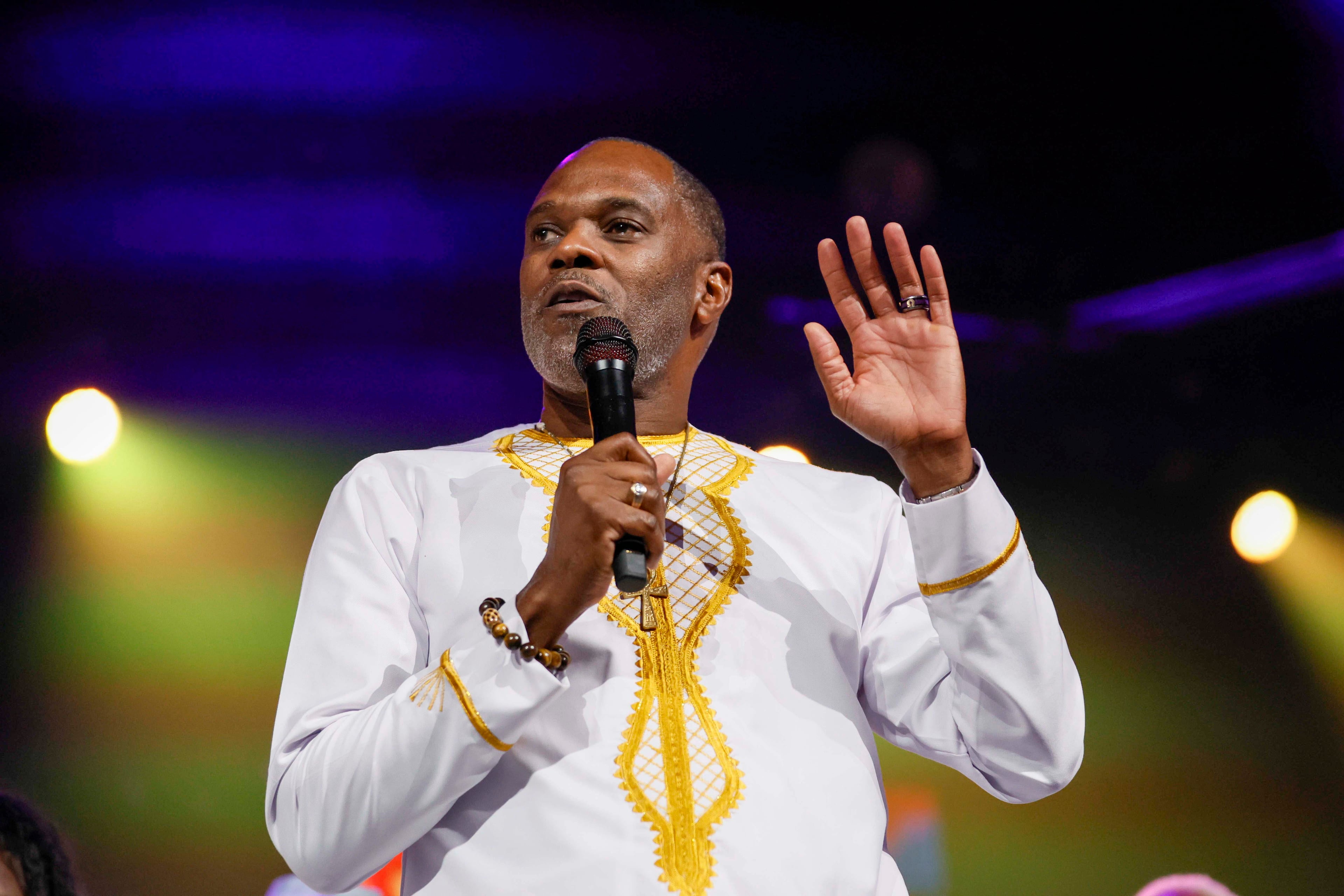
On Day One of his new administration, Trump signed Executive Order 14151, eliminating all federal DEI programs. Offices closed. Staff dismissed. Inclusion erased. Days later, Executive Order 14173 repealed affirmative action rules for federal contractors.
The ripple effects were swift.
The Pentagon suspended identity-based commemorations like Black History Month and Juneteenth. DEI language vanished from federal websites. Affinity graduation ceremonies for Black, LGBTQ+ and first-generation college students were canceled at some universities.
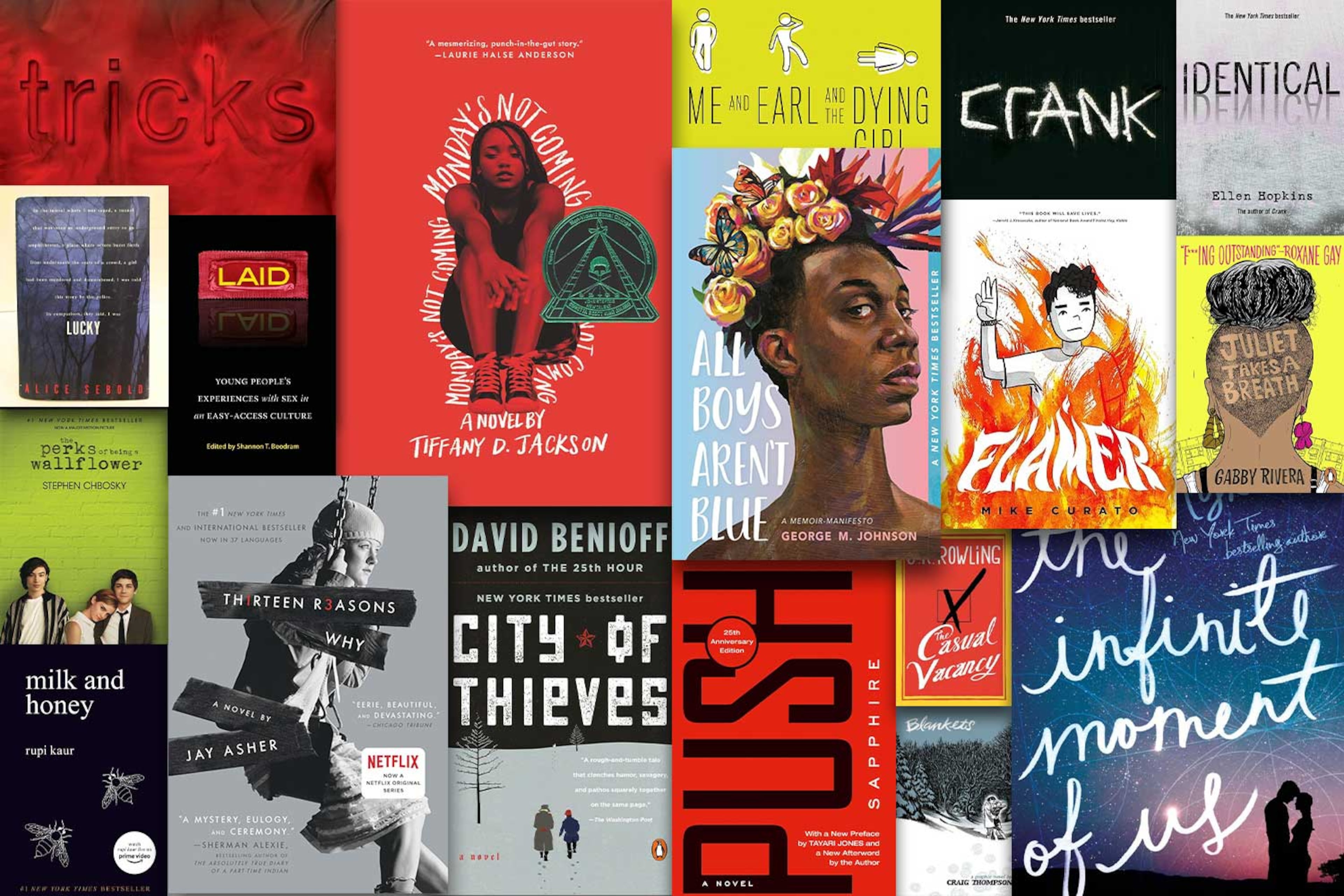
At the start of Pride Month — as Confederate names returned to military posts — the Department of Justice announced plans to rename the USNS Harvey Milk, a Navy ship honoring the slain gay rights icon and Navy veteran. Also under review: ships named for civil rights heroes Harriet Tubman, Thurgood Marshall and Medgar Evers.
“Project 2025 is being played by the book,” Oliver said. “They’re turning the pages meticulously.”
Poet and seven-time NAACP Image Award winner Nikki Giovanni, who died in 2024, a month after the election, noted the value of joy in a 2017 address.
“I’m very proud for Black joy because Black joy is Black will,” said Giovanni, who wrote extensively about joy. “I’m very proud that we are here, working our way through life because that’s all you got to do.”
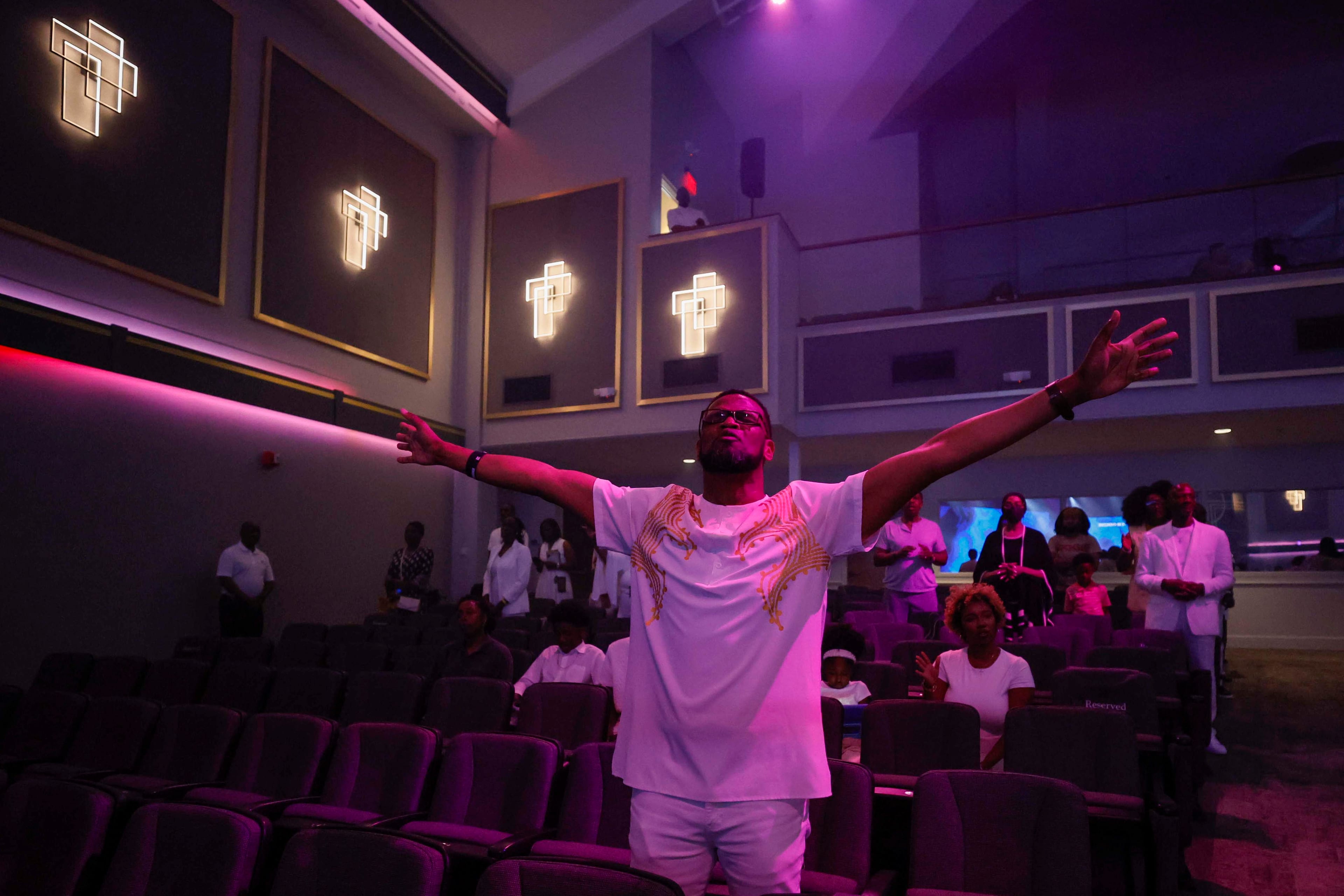
But a year after her death, that promise feels fragile.
“This country only knows trauma,” Marietta’s George said.
Juneteenth’s legacy
On June 19, 1865, more than two years after the Emancipation Proclamation, Union Major General Gordon Granger arrived in Galveston, Texas, to inform the still-enslaved people that they had been freed.
By 1866, freed Black Texans began marking Juneteenth with prayer, food, music and education — joyful festivals rooted in remembrance, resistance and resistance.

The tradition spread through the Great Migration, gained ground during the Civil Rights Movement and exploded again after the 2020 murder of George Floyd, a Black man who was killed by a white police officer.
In 2021, President Joe Biden signed legislation making Juneteenth a federal holiday — the first since Martin Luther King Jr. Day nearly 40 years earlier.
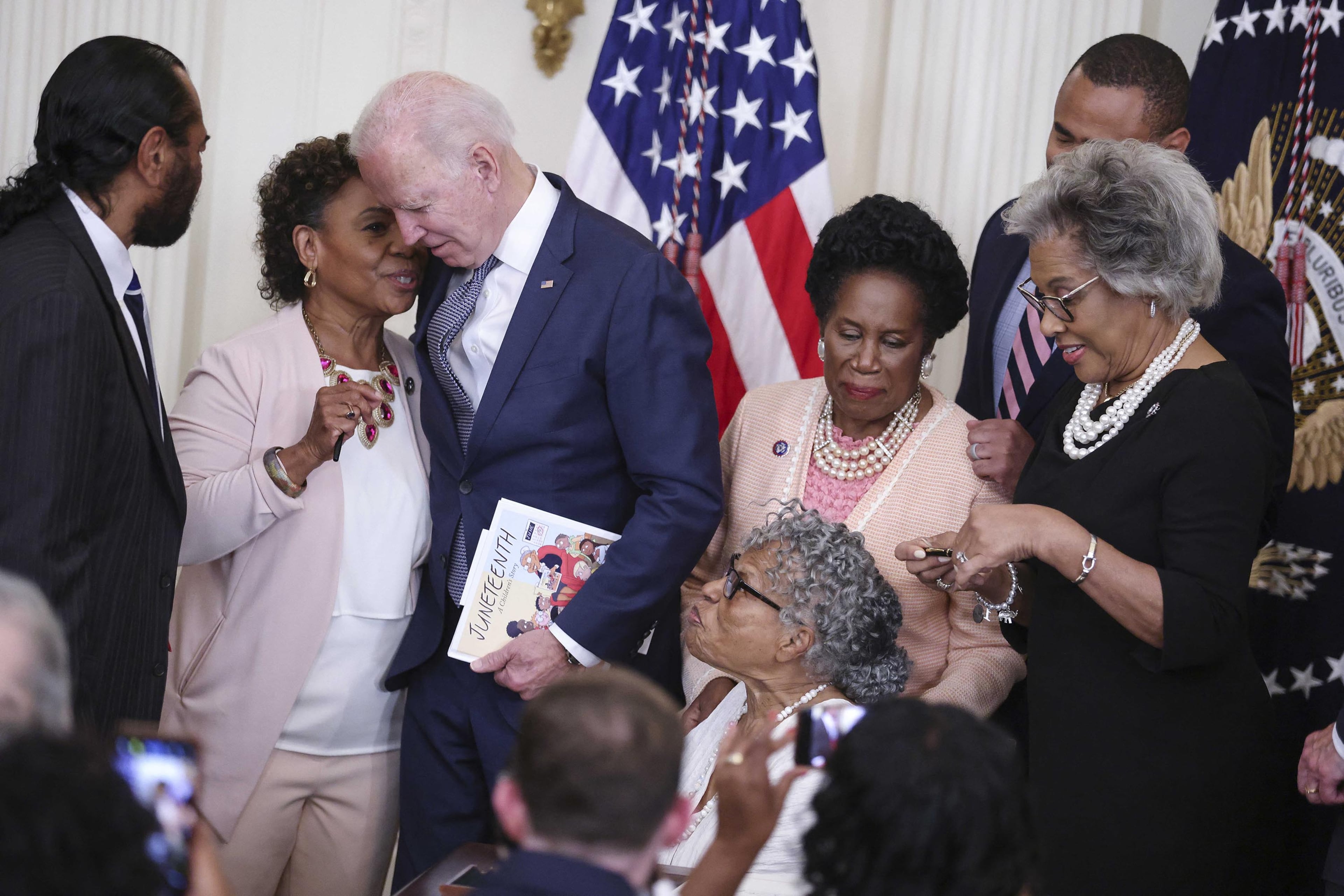
“Juneteenth marks both the long, hard night of slavery and subjugation and the promise of a greater morning to come,” Biden said.
Today, that promise is once again under threat — and Black joy has become a powerful way to keep it alive.
Pentecost Sunday
Eleven days before Juneteenth, on the morning of June 8, Elizabeth Baptist Church in Southwest Atlanta was electric. It was Pentecost Sunday, the final day of the Easter season, and nearly everyone was dressed in white.
It was also Pastor Oliver’s 30th pastoral anniversary, and Bishop Paul S. Morton — gospel music legend and pastor — was preaching.
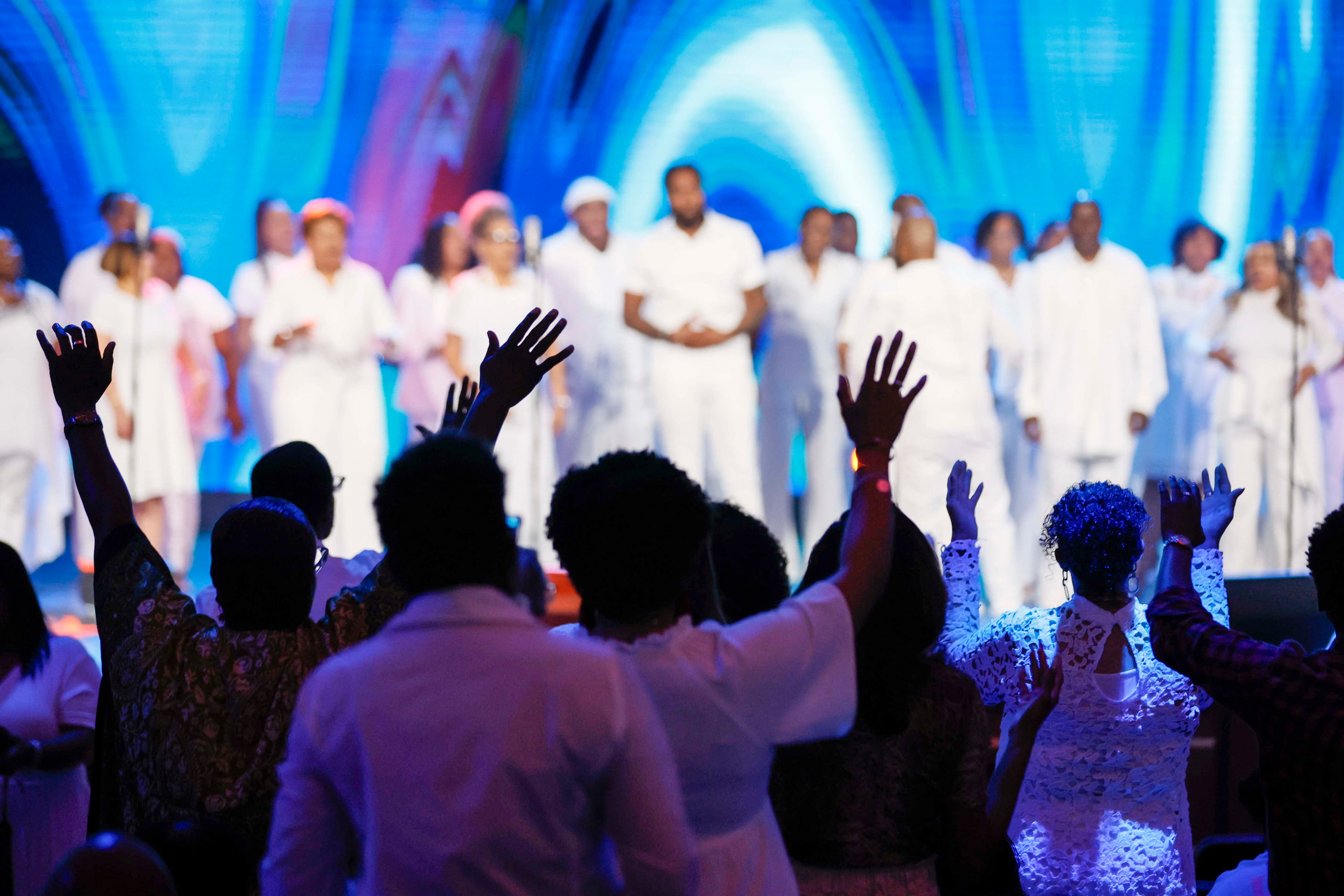
Before Morton reached the pulpit, the choir — dressed in linens, silks and fresh Air Jordans — stirred the congregation into a frenzy with old‑school gospel, blending soul, funk and Pentecostal fervor.
“We are a celebratory people. Amid all the challenges we face, we still find this capacity to give God praise,” Oliver said later. “That is the secret behind that resilient joy.”
Morton, in a sharp white suit, preached for 40 minutes before transitioning into a mini-concert. He asked if the congregation could “smell the rain,” then launched into his classic “Let It Rain,” a song about divine blessings that pleads with the Lord to “open the floodgates of heaven.”
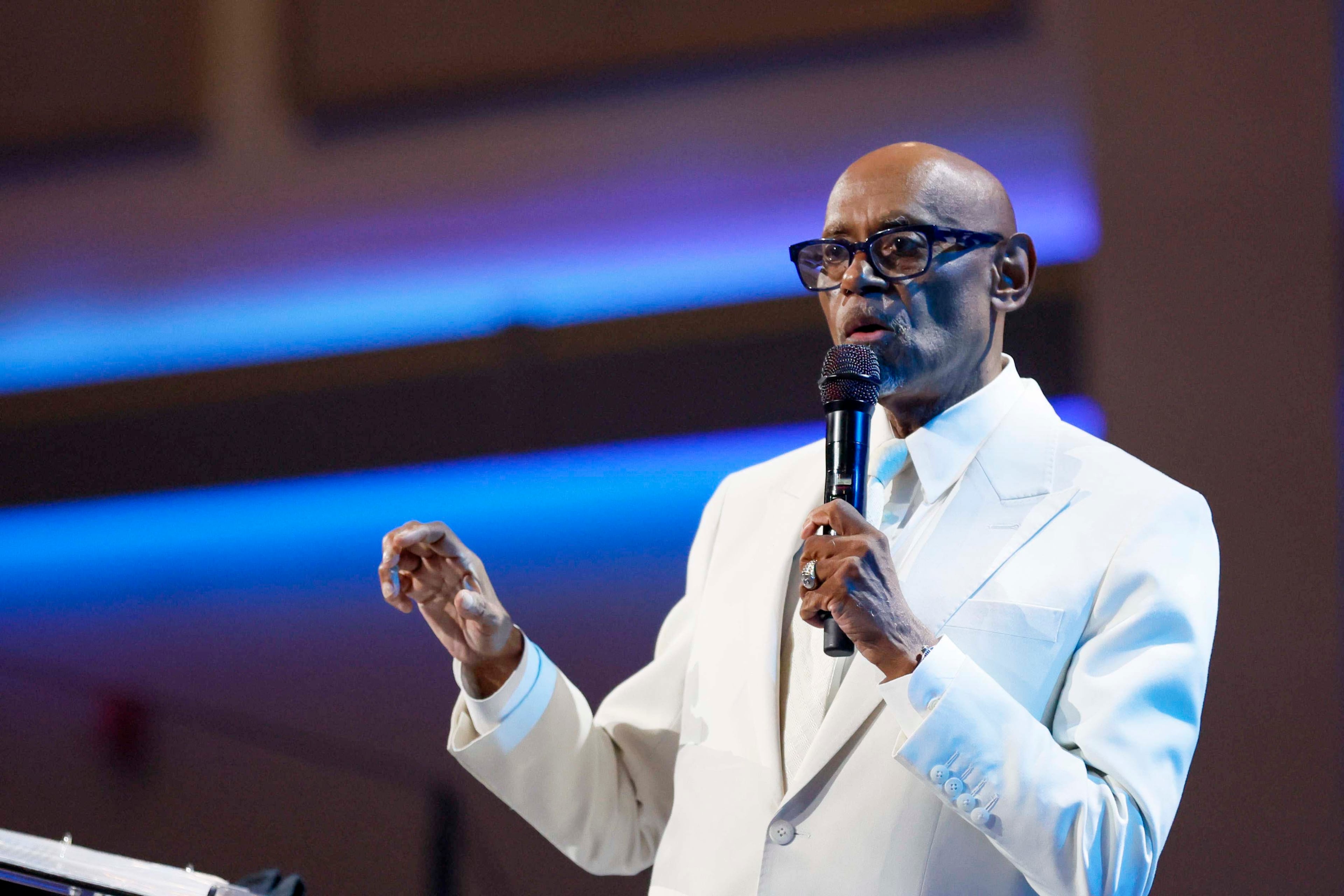
Many sang every word. Some cried. Others danced. At least five people walked forward to join the 13,000-member church.
Later, at the Pentecost feast, Morton reflected on the deeper meaning of joy for Black people who have endured 400 years of slavery, segregation and systemic oppression.
“Joy is something that the Lord said you gotta have. That is why the devil tries to take it,” Morton said. “I am not letting Donald Trump or the tariffs take my joy. I’m keeping my mind on the joy of the Lord, which is my strength.”
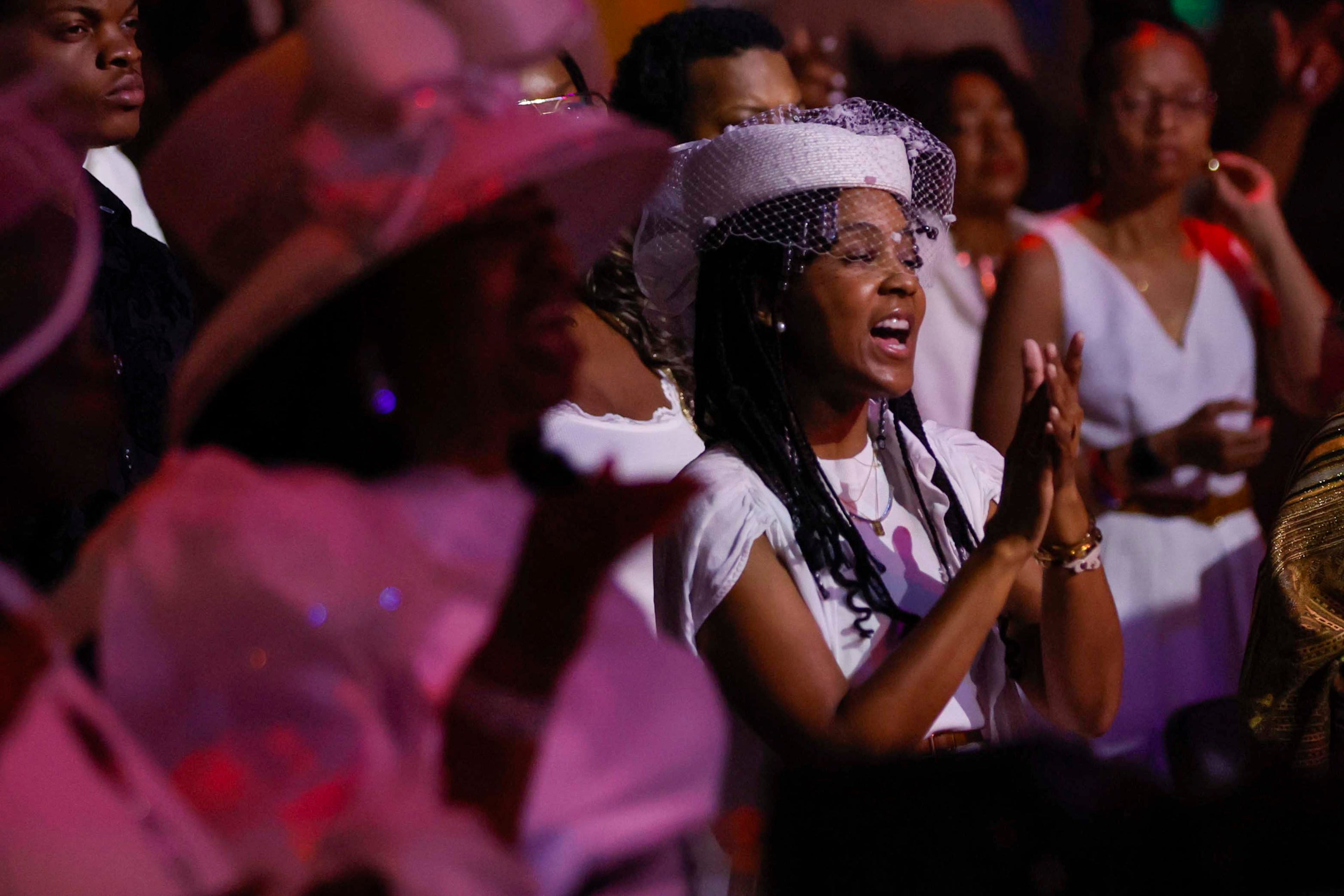
Scheduled joy
George, a publicist and mental health advocate, schedules her joy like she schedules her meetings. She has reframed the “work-life balance” narrative.
“Work hard. Play hard. Rest hard,” George said. “That became my mantra. I do all three. And for disciplined people, that means scheduling joy.”

Her calendar is filled through October — with joy.
“We schedule meetings and calls. Why not joy? ‘#ScheduleJoy’ is actually one of my hashtags,” George said. “I’m not meant to live the same year over and over again. If I do, then am I really living — or just repeating?”
Cultivating joy
In Decatur, LaFloy — mother of five and grandmother of four — begins each day with breathing exercises and yoga. Her home is an Edenic sanctuary of vegetables, herbs, flowers, pollinators and propagation stations thriving beneath the Georgia sun.
LaFloy’s garden teems with color, fragrance and life.
Hummingbirds dart toward purple blooms. Bees zigzag through Black-eyed Susans, basil, lavender and collards.

Last week, while cutting stems and fertilizing her watermelons and tomatoes, a sudden storm rolled in. The bright sun vanished. LaFloy couldn’t have been happier.
“Cultivating joy is an act of resistance and something I’m very intentional about,” said LaFloy, who is doing something in the garden at least five times a day. “It needs to be purposeful — something we seek out every day.”
Her clarity came through trauma.

A few years ago, LaFloy collapsed while dining out. She fell face down in the street, in a pool of blood, with a broken jaw. Doctors traced the fall to her vagus nerve, the body’s regulator of stress.
The incident changed everything.
“I came to the realization: I’m not going out like that,” said LaFloy, who now teaches yoga and meditation, serves as a doula and leads workshops on vagus nerve activation. “I am grateful that I even have a garden to look at. That I have the time and space to come out here and just … be.”

As the rain poured down, LaFloy sat on her porch with a cup of coffee, gazing out at her garden and at the life she’s reclaimed, one breath and one bloom at a time.
The practice of intentional joy, she says, is especially vital during Juneteenth — a holiday born of delayed liberation.
“Where dem fans at?”
At the A.W. “Tony” Matthews Boys & Girls Club in Mableton, Woods leads a room full of dancers with military focus and sister-girl warmth.
Through “Adrian’s Feet-N-Motion Soul Line Dancing,” she teaches three nights a week while managing a full-time job and raising a family.

She credits her improved health as a Type 2 diabetic to teaching line dancing for 10 years. She claims to know more than 500 routines, boasting that she can slip into any one of them at the drop of a beat.
But one thing changed everything to increase the interest in line dancing.
“Boots on the Ground,” set to a 2024 election-season anthem by 803Fresh, sparked the call — “Where dem fans at?” — and went viral.
Robin Roberts, Michelle Obama, Beyoncé and even Kamala Harris joined in.

Since the election, Woods’ class enrollment more than doubled — from about 40 to over 100, eager to learn the dance.
On a recent night at the Boys & Girls Club, the entire gym floor pulsed with movement.
More than 50 dancers, aged 6 to their late 70s, moved as one. Nearly all were women. Most were Black.

Those not wearing green class T-shirts sport Juneteenth-themed shirts in various styles. All of them dance for exercise, for mental health — and, above all, for joy.
“I teach two-hour classes, and we dance, dance, dance,” Woods said. “It’s the perfect marriage of music and movement. It’s catchy, it’s fun — and in this political climate, it’s timely.”
